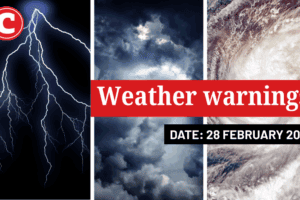You can tell it’s November because the lists have started to fall from the word trees, and first to land...

You can tell it’s November because the lists have started to fall from the word trees, and first to land is 2024’s Word of the Year.
It seems the not-exactly-new word “brat” has been declared that by Collins English Dictionary, sadly beating magical modernisms as looksmaxxing, rawdogging and brainrot.
This is because Brat is the title of an album by Charlie XCX (“I believe she’s a beat artist, m’lord”), which personifies musically the limegreen attitude that was, we are told, the hallmark of the confident, independent, hedonistic summer which passed me by. I’m so old.
Also, I just can’t wear lime green.
ALSO READ: Reflecting on SA’s most popular names and cultural identity
“Brat” is only the first of this year’s words though, because other dictionaries will all make their pronouncement within the next few weeks, from Merriam-Webster to Oxford, and even the esteemed Macquarie Dictionary, collector of glorious Australianisms like muffin top (2006) and burkini (2007).
This got me to thinking about former Words of the Year. What stuck, what didn’t, and why?
Back in 1992, a more innocent time perhaps, the word of the year was “Not”. I’m guessing Wayne’s World was out at the movies that year. In 1993, it was “information superhighway” which has remained ever popular. Not.
The next year “cyber” was the thing, and then, come 1995, a magical construction called the “World Wide Web” was the latest buzz phrase. By 1997, we were talking about the “millennium bug”, and in 1999 it was all “Y2K”.
By 2002, “Weapons of Mass Destruction” was our word/s of the year. In 2005, it was “truthiness”, which is a concept now so pervasive that it’s outgrown the word, “truthiness” being something felt to be true when it’s not.
In 2007, the global economy teetered and duly “subprime” became the word of the year; by 2008, we had “bailout”; in 2009, “tweet”; in 2010, “app”; in 2011, “occupy”; in 2012, “hashtag”; in 2015, “austerity’… And then we came to 2016, when “dumpster fire” was it. Oh, and “Brexit”, which was basically the same thing.
Then 2017 brought “fake news” and “populism”, and in 2020 we had “Covid” and “lockdown”. It reads like a tiny history, finished perfectly by “brat”. Not.
Instead, I suggest “sanewashing” cos that’s exactly what 2024 feels like.
NOW READ: Why older women are hot
Support Local Journalism
Add The Citizen as a Preferred Source on Google and follow us on Google News to see more of our trusted reporting in Google News and Top Stories.






